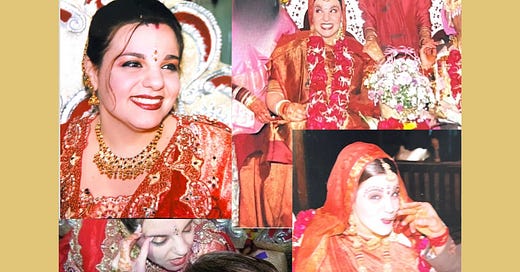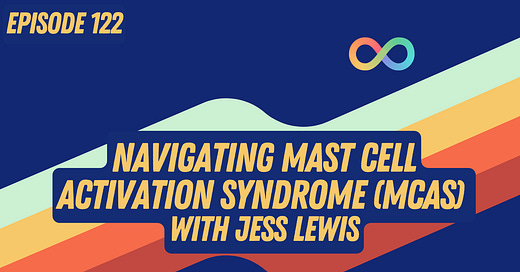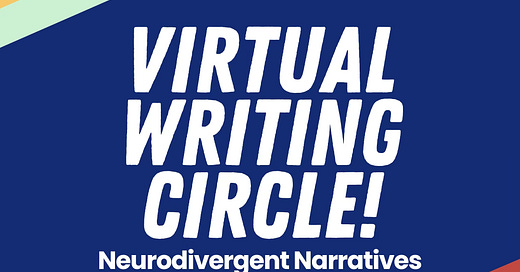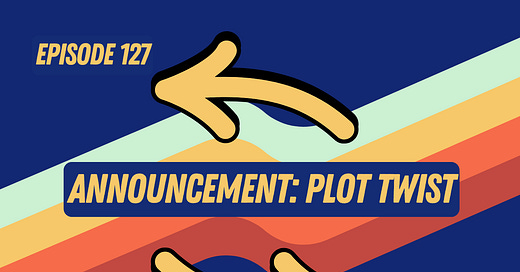
My Top 10 Tips for Communicating with Autistics
Read now (4 mins) | Plus how I embarrassed the hell out of myself at my big Indian wedding
May 4, 2023
The problem with communication between Allistics (non-Autistics) and Autistics who have minimal support needs with talking, is similar to the problems that occur across any cultural divide.
At my wedding in India, I wanted to show my in-laws how grateful I was, so even though I hate crowds and party noise, I committed to dancing until the band stopped playing so they could see how much I appreciated their efforts. “No sulking!” I promised myself.
I assumed they booked the band for 2 hours or maybe 4 and I was all in. It turns out they hired the band to play for as long as people were dancing — especially the bride. Instead of looking grateful, I looked greedy. The more I danced the more they wondered exactly how rude I was going to be as their daughter-in-law.
Classic cultural miscommunication. Or what you might call a double empathy problem.
My empathy looked like their rudeness and vice versa. Lost in translation.
All Autistics have spent a lifetime learning about the culture of the neuromajority. If you want to be a better cross-cultural communicator, you need to learn about the culture you are interacting with—in this case, Autistic Culture.
With that said, here are my top 10 tips for communicating with Autistics:
Cut the small talk. No discussions of traffic, weather, children, partners, or pets unless there’s something genuinely interesting about them. Also, please omit pointless tours of our shared history.
Take the CONTENT of what we say at face value. There is no secret agenda. Our looking away or making faces doesn’t mean something. We are people of our word.
Feel free to stare at your phone or look away from us when we are talking to you if it helps you think better. We get it; eye contact slows down our processing; try NOT making eye contact and see if it’s more comfortable for you too. If we feel like you aren’t listening to us, we will tell you, and we invite you to do the same!
When we ask questions, remember the reason is because we have a question. Again no secret agenda. Not trying to trick you. We asked a question because we couldn’t figure out the answer on our own, and it feels like the answer might be necessary for us to continue effective listening.
At any moment, if you notice an inaccuracy or an inefficiency, stop everything and tell us right then and there! Even if you think we rank higher in the social order. In Autistic communication, we are all equal in the world of ideas and facts, so if you have a better piece of information to present, simply state that.
Interrupting a dialogue is not automatically rude, depending on the value the information brings to the dialogue. Interruptions for questions (to clarify information so you can pay better attention), for presentation of research or facts, or to LOOK UP facts are to be highly encouraged.
Address disagreements you have with us by presenting fact-based research. We like visuals, props, PowerPoints, spreadsheets, and SOURCES! We want to see your sources. Show your work and make your case like a lawyer.
Present your information with whatever demeanor you want. You don’t have to act in any way because we will be evaluating it not on the presentation but on the actual content. Sometimes a flat affect is the most efficient.
If we tell you a sad story or a story of injustice, do not give us solutions unless we specifically ask for them. In order to show empathy, please find a related - even tangential story - and share your similar story. This is one way we show empathy in Autistic culture by relating with a story from your own life.
Share, even briefly, that you are trying to learn more about Autistic culture. As a former exchange student, I can tell you, trying to fit into another culture is tiring AF! So tip 10 is to learn our culture if you love us and take on some of the adapting.
Are you Autistic? What would you add to this list? Are you allistic and this was helpful? Tell me about your cross-neurotype relationships in the comments!
*Background note: Most people only have a vague (often, highly stereotyped) version of autism in their minds and believe that autistic children need (traumatic) ABA therapy to "overcome" their disability and appear "normal." After receiving an autism diagnosis in her thirties, Dr. Angela Lauria realized that she too had been mostly unaware of what it means to be Autistic. Like so many people, she started her journey by first gathering information and resources from the omnipresent (and problematic) Autism Speaks, but eventually moved away from the 'autism community' in favor of the 'Autistic community,' where she found kinship with other Autistic individuals and learned to let go of pathologizing language like 'autism spectrum disorder' and 'Asperger's Syndrome.' This autism blog (and her autism podcast, "The Autistic Culture Podcast") is meant to share her lived-experience insights to support others on a similar journey of diagnosis, understanding, and community. Embrace Autism--differences are not deficits.












